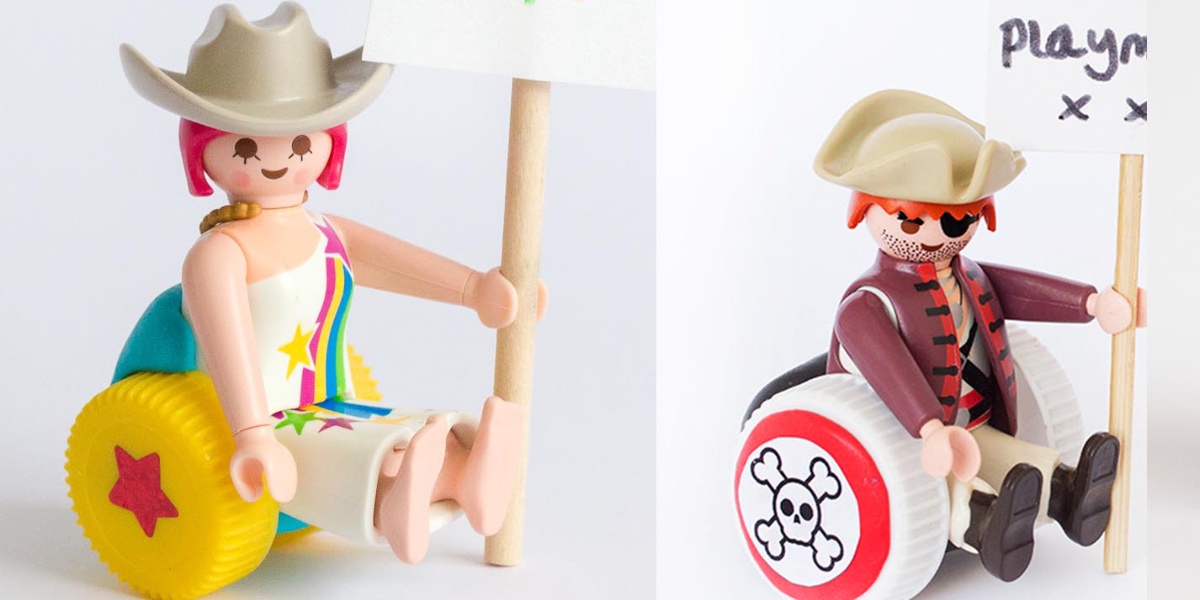
The #ToyLikeMe site uses cookies, we just thought you'd like to know...
Close
I had never come across the Social Model of Disability before, but as a wheelchair user myself, it has had a profound impact on me and will hopefully stick with me throughout my life! It has changed my perspective on the injustices experienced by disabled people.
So what is The Social Model of Disability and how can it be used to help or improve the mental health of young disabled people?
The Social Model explains that we are not dis-abled just by our bodies, but by the barriers put in place by the way society is built and organised. For example, if steps or narrow doorways didn’t exist I would be much less disabled as a wheelchair user. To help me understand this, I watched a Scope video. I was not expecting to feel much, however I almost cried! It’s very hard to put into words why it was so powerful because I have never felt like a burden, it’s just that I always felt that I was the odd one, why did I have to be a nuisance? I was always aware that society had to change its attitudes but I still always felt guilty for asking for help.

I went to a mainstream school and was the only wheelchair user. I first realised I was disabled when I was around 11 or 12 when I realised everyone else could walk, but I couldn’t. At school I was refused certain activities due to ‘my disability’ (or so I thought). I loved the school and the staff but I was often not allowed to do certain things as it was deemed unsafe. For example, I was rarely allowed to join in with PE or school trips because of ‘health and safety’ (my sworn enemy!) The Social Model has shown me that this wasn’t about what I ‘couldn’t do’ but about what the school or society ‘couldn’t facilitate.’
I think the Social Model of Disability is something that children and parents need to learn about to support mental wellbeing. I think if the non-disabled community is made aware of it we can strive to make our world more accessible. If the next generation is conscious of it, the accessibility will be accepted as a given. This is so useful for disabled children to know because they should understand that they are not a burden.
Even though I have been very lucky in not having mental health illnesses, a lot of disabled people do go through this, sometimes because of their physical disabilities. I do occasionally get upset because of my disability, if someone makes me feel different. For example, if I’m going down the street and someone says a weird comment like “I’m so sorry” or “Can I pray for you?”
I think for someone who might be struggling accepting their disability The Social Model of Disability is a perfect starting point as it gives those feelings validation. For me the Social Model has made everything seem possible because disability is a construct that has been perpetuated by society. It was a ‘them problem’ not a ‘me problem’.
By Liesl Hammer.
Mash Design | Beth Moseley Photography | #ToyLikeMe Community Interest Company (not-for-profit) - 10778527
